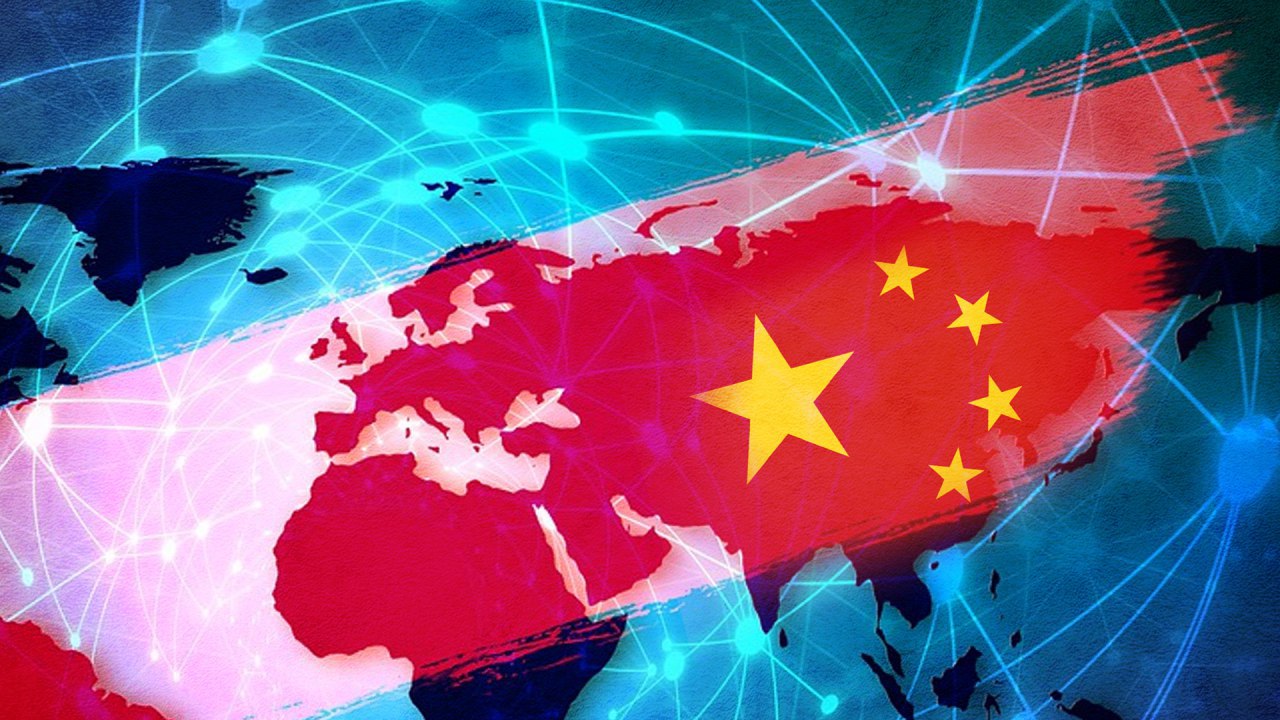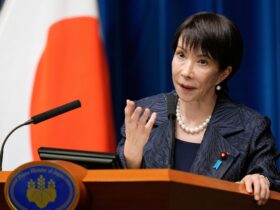Cheng Enfu, an adviser to Chinese President Xi Jinping on economic issues, stated that Turkey’s participation in the Belt and Road Initiative would contribute to finding a peaceful solution to the problems in Eastern Mediterranean. In an article co-authored with Li Jing and published in Belt and Road Initiative Quarterly (BRIQ) Autumn 2020 issue, Prof. Cheng Enfu emphasizes that “the problems that Turkey faces in the Eastern Mediterranean are similar to those of China in the South China Sea”, and maintained that:
“Turkey has developed the “Blue Homeland” concept in order to highlight its sovereign rights in the seas surrounding the country on three sides. The problems that Turkey has been facing in the Eastern Mediterranean are similar to those of China in the South China Sea. Due to the involvement of foreign countries outside the region, such problems –which could have been solved through mutual negotiation– have been exacerbated so as to generate military conflict.
Turkey’s active participation in the Maritime Silk Road will greatly contribute to finding a peaceful solution to the problems in the Eastern Mediterranean. It will also encourage the participation of several countries from North Africa and West Asia. This will make it possible for the Mediterranean to become a sea of peace and prosperity.”
Cheng Enfu is Vice Director and Professor in Chief of the Academic Committee at the Chinese Academy of Social Science (CASS), as well as a member of the Presidium of Academic Divisions. He also serves as Dean of School of Economics at Shanghai University of Finance and Economics, and as a professor at Shandong University. He is a member of the 13th National People’s Congress Education, Science, Culture and Public Health Committee. He serves as editor-in-chief of international journals such as International Thoughts Review, World Political Economy Review and also Political Economics Research and the Shanghai School of Economics Quarterly. At the same time, he is the Chairman of the World Association for Political Economy, a professor emeritus at St.Petersburg University, Russia and the Russian University of Economics and Law.
The potential of cooperation between Turkey and China
Cheng Enfu described Turkey’s position in the BRI saying that: “Turkey’s unique position in the BRI lies in that this country will serve as a gate to Europe and Africa for China’s trade operations along the BRI,” and added that “around 1,000 Chinese companies are currently operating in Turkey. They mainly carry their operations in the logistics, electronics, energy, tourism, finance and real estate sectors, and are expanding their businesses. They have increased their operations in Turkey after the launching of the BRI. In order to increase connectivity on the BRI, the Turkish and Chinese transport ministries signed an agreement during the Belt and Road Initiative Summit held in Beijing in 2017, which involves an international passenger and cargo transport company. The agreement is expected to unlock international road transport channels between China and Europe, with Turkey serving as the middle corridor of the route. The agreement, which symbolizes China’s willingness to integrate the BRI Turkey’s development strategy, will also help strengthen the exchange between China and Turkey, promoting the facilitation of international transportation among the countries located on the Silk Road.”
A public good provided by china to the world
Cheng Enfu indicated that BRI is an important initiative for the common future of humanity:
“The BRI is a public good that China has provided to the world in the context of profound changes at home and abroad, and it aims to promote the in-depth development of international cooperation. Having been subjected to foreign aggression and poverty for more than a century, China knows full well the importance of development and stability. China hopes that its own development and that of its neighbors will complement each other, and welcomes its neighbors to board the fast train of its development so that they can share more from China’s development.”
“Under the guidance of this concept, the BRI has been adhering to the principle of achieving shared growth through consultation and collaboration since its inception, which makes it non-competitive and non-exclusive. All countries willing to join the BRI, no matter big or small, strong or weak, rich or poor, are all equal builders.”
“(…) Secondly, the BRI is a concrete manifestation of the implementation of a community of a shared future for mankind. In the process of advancing the construction of the Belt and Road, China respects the diversity of countries along the Road in terms of stages of development, historical traditions, cultures and religions, customs, etc. Meanwhile, China neither imposes its own ideology and social system on others, nor engages in closed mechanisms, let alone geopolitical or military alliances. As an open and inclusive community of interests, the BRI abandons zero-sum thinking, insists on promoting mutual benefit and win-win cooperation on the basis of multilateralism, and emphasizes the ‘gradual, procedural, consultative and long-term nature’ of cooperation, thereby broadening the content of traditional international cooperation and realizing inclusive development. These measures coincide with the inherent requirements of a community of a shared future for mankind.”
In BRIQ’s autumn issue
In the fourth issue of the BRIQ Journal, the Belt and Road Initiative included articles on cooperation in the seas with its commercial cooperation, geopolitical and geo-economic aspects.
Editor-in-Chief of BRIQ, Fikret Akfırat remarked in an editorial that “Turkey’s resolution to protect its own rights and interests in the Eastern Mediterranean and Cyprus against US provocations directly contributes to the advancement of BRI. With its role as a strategic bridge between continents, Turkey’s active participation is crucial for the construction of the West Asian feet of BRI. This being said, the positive effect of Turkey’s participation is not limited to this role alone. Turkey’s participation would also disrupt plans for restraining BRI within the borders of Asia.”
BRIQ Autumn issue includes interviews and articles from China, Russia, Iran and Turkey. In this issue, the Editor-in-Chief of BRIQ, Fikret Akfırat, interviewed Dr. Alexander Dugin, one of the prominent thinkers of Russia on the future of Eurasia and the emerging multipolar world order. In addition, this Autumn issue includes an article on importance of the BRI for the developing world by Dr. Assadollah Athari from Islamic Azad University and Dr. Ehsan Ejazi from Gulian University as well as an article on the North Aegean (Çandarlı) Port and its potential role in the BRI by Dr. Ersel Zafer Oral, an article on the future of the Eastern Mediterranean by Dr. Mehmet Perinçek from Moscow State University and an article on economic and financial cooperation in the BRI countries by Serhat Latifoğlu who is a hedge fund manager.
Moreover, this issue includes a review of a book published by Center for Strategic Research of the Ministry of Foreign Affairs of the Republic of Turkey along with a photograph by Ni Min who is one of the most prominent photographers in China and a “History” section which presents a review on the first book about Atatürk ever published in Iran.

















Leave a Reply